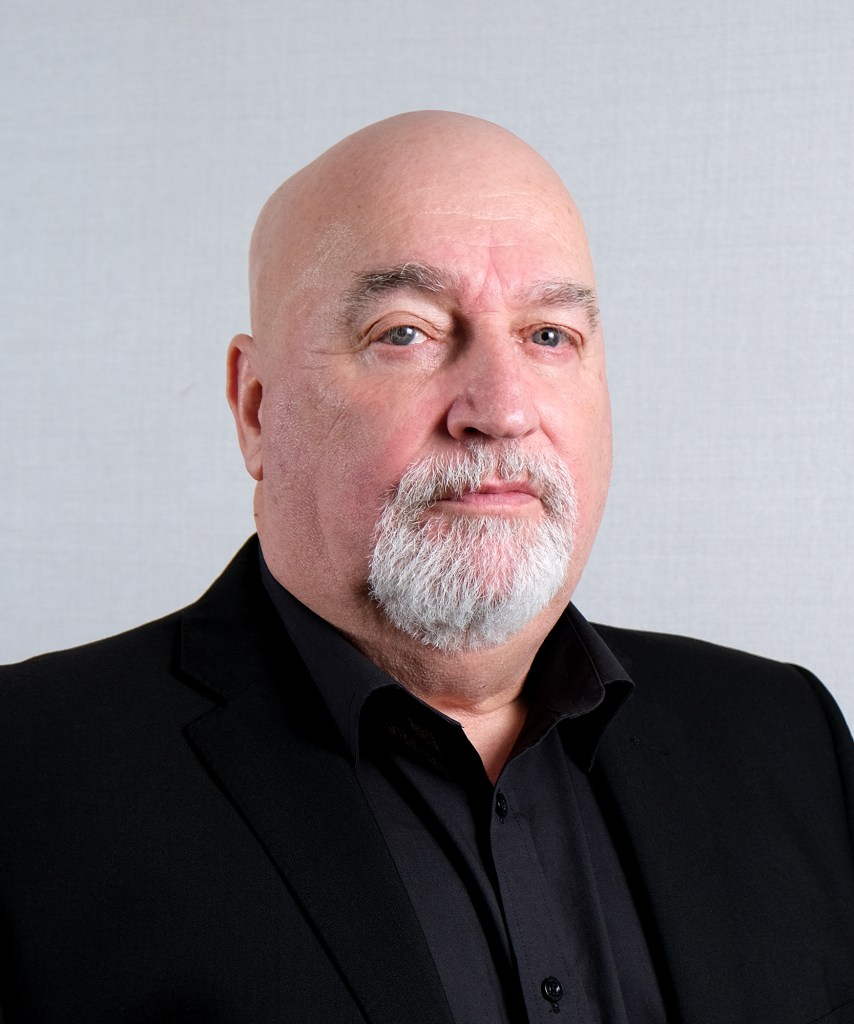We spoke to Tony McClements, former detective and head of Investigations at Martin Kenney & Co (MKS), a specialist litigation practice in the British Virgin Islands which specializes in large-scale global asset recovery litigation. Tony invites us into his world of criminal investigations, sharing his insight and stories and about his work and offering advice to those starting out in their careers in anti-financial crime.
Be prepared, his reminiscences invoke UK TV police series Life on Mars and Line of Duty!
Tell us about yourself
I joined Merseyside Police (Liverpool) 42 years ago in 1982, becoming a detective in 1985. Since then, I’ve worked primarily on major crime. My CID (Criminal Investigation Department) career included Special Branch (CTU, or counterterrorism as it is known now), with a secondment to the Metropolitan Police SO12 Unit at New Scotland Yard.

Photo: Private
I also became a HOLMES Exhibits (Home Office Large Major Enquiry System) officer. This included attending numerous autopsies of murder victims. Although often sad, and not everyone’s cup of tea, I found it fascinating. Dealing with the forensic enquiries afterwards, travelling back and forth to the forensic science labs and liaising with the scientists, carried a lot of responsibility: any mistakes in continuity of exhibits could prove damaging to the prosecution.
I then joined the Fraud Squad in 1998, and career-wise I never looked back. Liverpool is a busy city to work in, almost notorious in a UK context. A lot of our regular “customers” gained respect by dishing out beatings, and in many cases from pointing and sometimes using a gun. Generally speaking, these “gangsters” are not the brightest, and I found pitting my wits against fraudsters a huge step up in terms of the professional challenge. Corporate fraudsters, usually speaking, are clever people and nobody’s fool. Defeating the defences that they carefully contrived was inherently difficult.
After I was seconded to the Northwest Regional Asset Recovery Team in 2007, I was immediately sent to work with Lancashire Constabulary to help investigate an organised crime group (OCG). Our initial enquiries established that HMRC – Her Majesty’s Revenue and Customs, the UK’s tax authority – was also investigating the same OCG. Indeed, it turned out that HMRC had three units investigating different aspects of the gang’s ongoing criminality.
After meeting with a former colleague who now worked with the HMRC, we decided that the best way forward was to set up a conjoined squad of police and HMRC investigators. The potential for CPIA (Criminal Procedures and Investigation Act 1996) disclosure failures were significant, given the four disparate investigations. Merging the four teams seemed the sensible option. Although the two organizations had worked together on drugs importations cases, we had never done so on a huge Value Added Tax (VAT) fraud, colloquially known as a “Carousel Fraud”. It was a UK first.
“Corporate fraudsters, usually speaking, are clever people and nobody’s fool. Defeating the defences that they carefully contrived was inherently difficult.”
The situation was initially a hard sell to our respective bosses. Eventually, they agreed and the new squad had almost 40 members. I spent months helping to set up a covert office, along with the respective police/HMRC computer systems (which could never communicate with each other). The investigation went on long after I left, and secured 35+ convictions and significant custodial sentences. Indeed, the asset recovery element is still ongoing.
I must have done something right during my time with “Lancs”, as the Lancashire force asked me to transfer to them. I stayed with Lancs until my retirement. They actually kept me on for a further two years (via a very rarely used scheme called “30-plus”), before I eventually joined British Transport Police (BTP) as a civilian investigator.
I was only with BTP for 12 months when the vacancy arose for a fraud investigator with Martin Kenney & Co (MKS). The role was based in the British Virgin Islands, and when I applied, I was successful. In terms of coincidences, my soon-to-be new boss was a retired detective from London. He took my CV to one of the ex-patriate detectives on the islands (now serving with the Royal Virgin Islands Police Force), because he thought my background in fraud and financial investigation was a little too good to be true. Coincidentally, the ex-pat detective was one of my former bosses from Liverpool. Fortunately he was able to confirm the content of my CV and the rest, as they say, is history.
“The government needs to create an ethical conduit whereby the private sector can share intelligence with the police, and have the courtesy returned.”
This led to me living and working in BVI for three years, until Hurricane Irma intervened in 2017. This was a huge storm which devastated the islands. This destruction included my rented home: it was literally flattened, with much of it going down the side of a mountain.
Eventually, after living rough for 10 days without proper food and water, I was evacuated back to the UK. For health reasons I have had to remain in the UK, but Martin Kenney (the founder and Head of Firm at MKS) has allowed me and other members of the team to remain and work remotely from the UK. This has proven very successful, as we have plans to open an affiliate London office in the future. I am personally hoping we will get more involved with private criminal prosecutions.
I retain strong links to the University of Central Lancashire (where I did my MSc in Criminal Investigation) and continue to do some lecturing there. This has proven beneficial to the firm, as we have used my connections to headhunt some of the top students, including Harley Thomas, who is now our Senior Investigator and Forensic Accountant. Our team has been added to by Dave Milner, who like me is a retired detective, but from Manchester (not that I hold this against him).
For several years, the firm has been sponsoring an annual Martin Kenney Award to one of the MSc Financial Investigation students. In turn, the university has honoured Martin by making him a Visiting Professor.
MKS is full of top people, and expertise abounds. I struggled initially with the move from criminal law to civil law, in that the approach can be totally different. Although the burden of proof is lower, the firm always aspires to attaining best evidence, which suits me as that is the threshold I am used to.
What advice would you give to your younger self?
This is a difficult one to answer. Let’s just say that I come from the Life on Mars era and we did things differently in those days. That experience made me the detective (investigator) I am today. My advice to my younger self would be to study for the police promotion exams. Having experienced it, I know now that I would have been comfortable leading teams of detectives investigating big frauds and money laundering matters.
What has been the proudest moment of your career?
Serving as a police officer for 33 years. I also once worked on a gangland-related bombing in Liverpool. I identified, retrieved and exhibited a piece of evidence at the scene, which was about to be lost in the cleanup. It proved invaluable to the investigation and subsequent convictions (being nominated for the national detective of the year award would come a close second).
Tell us an amusing anecdote about your work
I once investigated a corrupt prison officer. As you can imagine it was a very sensitive matter: so sensitive that I had to liaise daily with the Chief Constable’s office and not my own Detective Inspector. To cut a long story short, when we went to his home to arrest him, he wasn’t too pleased. So much so, that we had to immediately physically remove him to the Bridewell (police station) and have him lodged whilst we searched his premises.
His wife, on the other hand, was very polite and pleasant. It was apparent that some of the corrupt funds had found their way to improving her overall good looks – in particular, her bosom. My colleague, who was acting as exhibits officer and also keeping the search log, was staring at her chest. This concerned me, as clearly this was inappropriate, even back in those days. However, all became clear when he asked her how much the new appendages had cost. She explained that the surgery had cost £4,000, adding that it was one of their better investments.
This sum later found its way into the expenditure column of the subsequent POCA (Proceeds of Crime Act 2002) confiscation statement. The judge, with a wry smile, added it to the overall benefit figure (the total amount the defendant had to repay).
What “regulatory gift” would you like to find under your Christmas tree?
Easy: the government needs to create an ethical conduit whereby the private sector can share intelligence with the police, and have the courtesy returned when firms like ours are investigating private criminal prosecutions.
At the moment, it is a one-way street, even though we are both trying to obtain justice for victims of fraud. It is frustrating as we are both in the same corner, wanting to take on crooks who are destroying people’s lives. If the police are not willing or unable to take on the task, they shouldn’t expect others to do so with one hand tied behind their backs.
What’s your New Year’s wish?
Another easy one. I’d like to shake off some of my many ailments so I can at least revisit the BVI and see my old island friends that I haven’t seen in seven or so years.
Also, I’d wish that Everton don’t get relegated ahead of entering our new stadium.
Can you recommend a good book?
I generally only read non-fiction (I gave up reading novels when I realised that I couldn’t remember the names of all the characters). However, my favourite novel would probably be Harry’s Game about an IRA hitman, and my favourite non-fiction would be The Iceman about a Mafia hitman (there is a disturbing theme here!).
We earlier spoke with Tony in episode 51 of The GRIP Podcast about fraud investigations, asset tracing and whistleblowing. Listen to the episode here.













